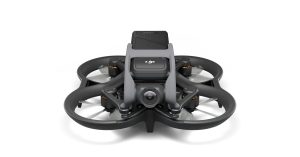Drone News
An AI-Controlled Drone Racer Has Beaten Human Pilots For The First Time

Drone racing is an increasingly popular sport with big money prizes for skilled professionals. New control algorithms developed at the University of Zurich (UZH) have beaten experienced human pilots for the first time – but they still have significant limitations.
In the past, attempts to develop automated algorithms to beat humans have run into problems with accurately simulating the limitations of the quadcopter and the flight path it takes. Traditional flight paths around a complex drone racing course are calculated using polynomial methods which produce a series of smooth curves, and these are not necessarily as fast as the sharper and more jagged paths flown by human pilots.
A team from the Robotics and Perception Group at UZH has developed a trajectory planning algorithm to calculates the optimal route at every point in the flight, rather than doing it section by section.
Previous UZH automated piloting algorithms had proved efficient at avoiding obstacles and…
Source: www.forbes.com









